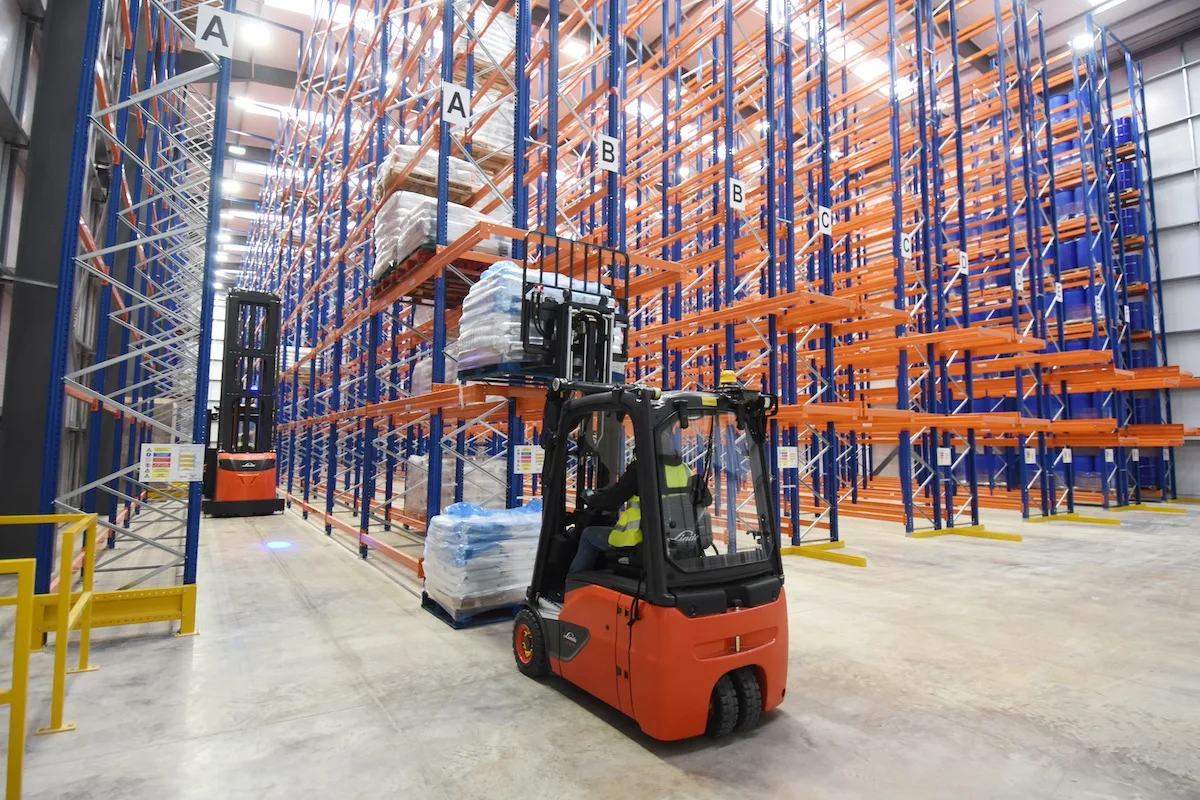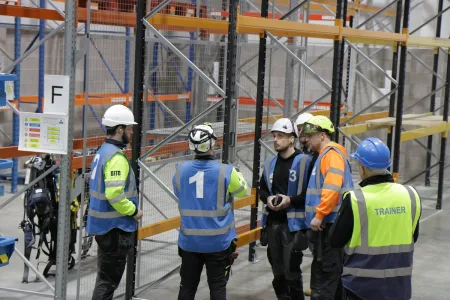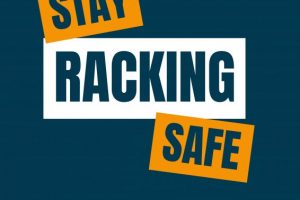Want a safer workplace? Don’t forget training!
If you haven’t been trained for your warehouse job, then how can you do the tasks expected of you? It’s an important question to consider especially when you realise that the HSE Health and Safety at Work Statistics repeatedly places the logistics and storage industry in the top four most dangerous places to work.

IT’S NOT surprising when you consider the risks involved – vehicles and automation moving around the space, items falling from height and accidents from incorrect manual handling.
One area of training that you may not have considered is with your storage equipment. As a leading voice on storage equipment safety within the UK, SEMA understands the risks facing warehouse owners. We take a look at how racking training can impact your warehouse and raise workplace safety standards.
The warehouse occupier’s role in racking safety
While you may think your responsibility for training lies only with employees on the warehouse floor. In reality, as the warehouse occupier or manager, you need to check everyone involved throughout your racking’s lifetime is trained – even the teams used by your suppliers.
This isn’t a ‘nice to have’ but goes much deeper by ensuring you are working within the Health & Safety Executive (HSE) and industry regulations.
Trained installers
Training starts with your installers. Previously, you might not have considered the importance of installation regarding a strong racking structure, but it is an essential factor. If the installer has incorrectly installed or missed a crucial step in the racking designer’s specification, it can quickly result in a system which is not up to the job. With racking potentially holding tonnes of stock, the last thing you want is for any part of that racking to fail due to poor installation methods.
One problem within the racking installation industry is the lack of training courses. A lot of installers still learn ‘on the job’ and over time it is very easy for them to pick up bad habits or, even worse, not know the correct methods in the first place. A second complication is that a lot of racking companies subcontract the installation work and you can never be sure they have checked their credentials.
One way to protect your business is to check that your installer holds a SEIRS card. Referenced in HSG76 Warehousing and Storage: A Guide to Health & Safety, this initiative provides a benchmark for the industry by rigorously training installers on correct installation methods in accordance with SEMA standards. An installer who holds a SEIRS Diploma card will have been trained on health and safety installation requirements, practical instruction on correct installation methods and passed a practical assessment to earn their qualification. Importantly, an installer must renew their qualification every five years to ensure they continue to meet our high standards.
Trained warehouse team
Training for your employees does not stop with how to work safely in areas with racking. In reality, it needs to go much further than this with employees understanding how to read the Load Notice sign, correct loading methods, work with warehouse equipment, potential hazards and correct manual handling processes. Yet, there is another factor you need to consider and that is in the everyday safe maintenance and inspection of storage equipment.
Under PUWER and HSG76 Warehousing and Storage: A Guide to Health & Safety you have a responsibility to inspect your racking – it’s a lot more frequent than you think. Follow the guidance from HSE and SEMA and they advise following a three-tiered approach. Every day ensure employees working in areas with racking can recognise and report if they find damage on the racking. You then need to appoint a member of your team to take on the role of Person Responsible for Racking Safety (PRRS). They will be responsible for performing the visual inspection and keeping a formal record of their findings with required actions.

To ensure your employees are racking aware, we suggest they attend training such as our Rack Safety Awareness course. Reference in HSG76, this one-day course held in our dedicated training facility provides them with the advice and knowledge they need to categorise damage found on the racking, responsibilities of users, understand load notices, weight limits and safety legislation. It will also prepare a member of your team for the role of PRRS. It will explain how often to perform in-house racking inspections, compliance with the law, conducting risk assessments, recording an inspection, recognising damage levels and actioning repairs.
Trained racking inspectors
The final stage in your racking inspection process is your Expert which should be conducted at least once a year. This can only be undertaken by a qualified professional. While there are lots of rack inspectors on the market, you need to appoint an inspector who has been correctly trained with a high level of engineering expertise. They must know how to recognise and assess the severity of any damage they find, the compatibility of equipment, floor fixing suitability and reporting methods.
The SARI initiative was set up by SEMA to raise standard levels in racking inspections. The industry standard “Damage-only” inspections list damaged items and possibly their location. However, an inspection by a SEMA Approved Racking Inspector (SARI) offers far more insight. A SARI doesn’t just note what’s broken – they identify racking type, equipment compatibility, damage, floor fixing suitability and minor issues. Significantly for warehouse owners, their report adopts a traffic-light system, outlining damage levels and timescales for repairs.
The second benefit of using a SARI is the reassurance it delivers by proving they have a significant level of engineering knowledge to deliver high quality and safe inspections. To become a SARI, the inspector must pass an intensive three-day training course and only earn their qualification once they have completed both a written examination and practical assessment. To ensure inspectors’ knowledge is kept up to date, they must also complete Continuous Professional Development (CPD) points each year.
SEMA training
For over 50 years, SEMA has been guiding the storage equipment industry on safe practices within their racking and shelving systems. Central to this are our RoSPA (Royal Society for the Prevention of Accidents) approved courses which cover each stage in the lifetime of your storage equipment.
Our SEMA courses have been so popular we have recently opened up a second purpose-built training space which meets the exact needs of our courses. The units include training rooms, kitchen facilities and a warehouse set up with racking systems from different manufacturers for delegates to use as part of their training.
If you want to show a commitment to safety and would like to sign up for one of our SEMA training courses, visit our website at www.sema.org.uk or get in touch by phoning 01543 278489 or emailing [email protected].






